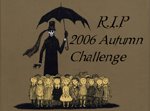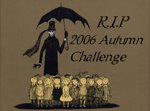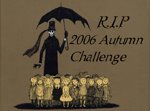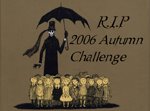The Unburied
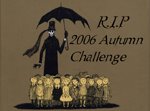
The Unburied
My final entry in the R.I.P. 2006 Autumn Challenge!
Title: The Unburied
Author: Charles Palliser
Copyright: 1999
Length: 402 pages (link to work on LibraryThing )
Summary: The plot centers around an historian visiting an old friend who has contacted him after a lengthy separation. He visits his colleague at Thurchester with the intent of making good use of his time by researching documents in the cathedral library that will set him on the path to an important discovery relevant to his specialty of early British history, specifically the period surrounding King Alfred (he of the famous burned cakes). During the week he is in Thurchester, there is a murder, a suicide, a corpse unearthed from prior centuries, a crumbling cathedral, a crisis at the choir school and a complex set of revelations to be deciphered and grasped. It is this last aspect of The Unburied that has put off many readers; it is indeed a most complex literary construction. This is not a book that can be skimmed rapidly. As one reviewer put it at LibraryThing, "This isn't a beach read." There are two narratives (the outer frame by a Mr. Barthelm and the lengthier internal story told by Dr. Courtine) and there are several manuscripts and stories (the fragmented historical manuscript, the fairy tale, and the completed manuscript that provides the final explanation of The Thurchester Mystery.) Each narrative unfolds as a segment of another and the result (as many unwary readers found) is a gothic novel that requires extended attention if one is to grasp both the resolution and the author's point.
Eerie/Creepy Quotient: This is a gothic novel, not a ghost story. It is on the creepy side, but it is not perhaps conventionally scary (a 3.75 out of 5 on the eerie/creepy scale). There are tragedies and shadowy encounters, but in the final analysis, this is an elegant historical/psychological mystery. One could read this in a house alone without fear of nightmares, but I must say that it might not be a pleasant experience. One would ultimately grasp the final resolution and be somewhat distressed/sickened. As modern Gothic novels go, this one is very well-done.Genre: Definitely a Gothic novel. Definitely adult reading. This one doesn't belong in your average high school library (not that most of them can afford to buy much in the way of books these days).
Extract: Go here for the extract. Do bear in mind that this is *not* the first chapter of the book as the NYTimes' site suggests. It is actually the first chapter within the Courtine narrative. That's relevant when you actually begin the book, because you may assume (as I did) that the editor's foreword is just that. A foreword (as in prefatory material) and not part of the novel's action.
Also Relevant: There were mixed reviews on this book. The New York Times panned it badly although the book showed up on the New York Times bestsellers list published the week following the review. Various other readers, posting well after its initial publication, had both good and bad reactions to the novel. As near as I can gauge it, the general consensus is praise for the construction of the novel but unhappiness with the final resolution. I think I'd agree. I'm not sorry I read it, but neither am I sure that it would be a suitable selection for a general book group. Say that it has niche appeal, and you've probably captured it.
The book's complexity makes it challenging, but a careful pacing of one's reading allows the author to unfold his message which is essentially that perception influences internal and external assignment of guilt. (That's certainly a valid point, but not perhaps news to a modern audience used to discussions of profiling in criminal investigations. This may be why some readers become impatient with his story-telling style.) Palliser makes his point by allowing his characters to focus on and unfold historical events, tracing criss-crossing versions of those events. I do think The Unburied suffers from a lack of distinction between the voices of those attempting to unravel the various threads of mystery. To my ear, all of the voices sounded just a little too like one another. One could barely keep them straight even while one was struggling to remember who was who among the various names (Gazzard vs. Grimlake; Speldrick vs Sisterson). That was indeed aggravating, which is why (I suppose) the publisher provided a list of the various characters at the end of the text. [One final warning: if you dislike tales involving child abuse, you should *definitely* avoid this one.]
As with all Gothic literature, various forms of uncertainty thread through this book. Such uncertainty reflects the fears that accompany an internal recognition that things don't always happen as planned. Actions have unintended consequences which teaches us to watch and proceed with caution. The message for at least one of the characters in The Unburied is that such caution may preclude us from taking the necessary actions to free ourselves from doubt.
As modern renditions of Gothic novels go, I preferred Grange House to this selection. The convoluted narrative is present in both as is the voice of an earlier age, but Blake seems to have the knack of moving her story along at just that slightly faster pace that satisfies the modern reader's need to move along quickly before a daily obligation arises and eliminates reading time.
By the way, I actually learned a new word from this book - pulpitum. Look it up. St. Peter's Cathedral in Exeter (UK) apparently has a very nice one.
